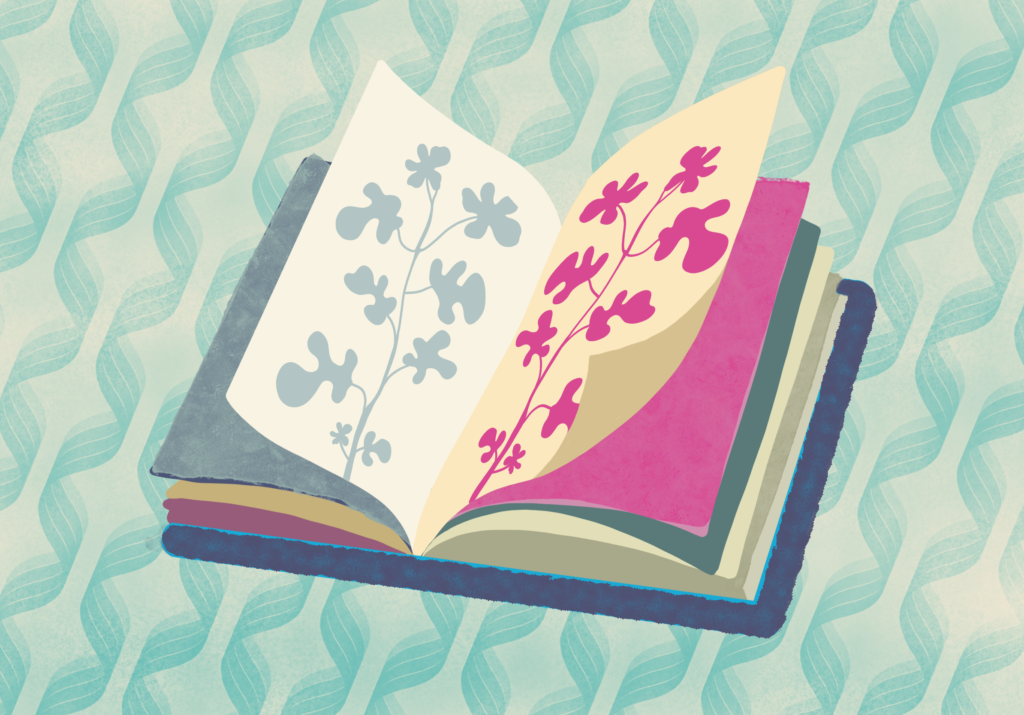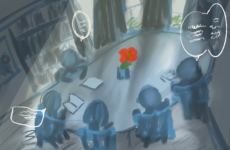
Graphic by Yujin Kim ’23
With all its glowing reviews, one would have expected Ross Gay’s The Book of Delights to make an impact. Yet, I failed to find the magic that many others raved about.
The premise of the book was simple enough: essayettes about how the mundane and everyday can bring joy to one’s life. Going into reading the book, I was excited. I had never read a book with this format before — I found Gay’s daily reflections on life’s delights to be an intriguing idea. However, a few chapters in, I started having doubts.
Instead of sounding like a well-put-together compilation of essayettes, the book read more like an unorganized collection of Gay’s consciousness and thoughts. Furthermore, with half the essayettes being under 250 words, the sometimes short and choppy pieces read like filler. The random facts and anecdotes scattered throughout the novel also contributed to the overall disjointed flow of the book. I understand the need to shock the reader with jarring juxtapositions, but did we need to hear about his step-daughter nearly drinking his urine or his recurring, inappropriate dreams about his mother?
I believe it is essential to expose students to various authors and styles, and I hope to read many interesting books that highlight the diversity of our world over my four years at Choate. However, The Book of Delights is not the best example of such writing. The anecdotal style is unique, but the repetative format makes the book dull and hard to remain focused on.
With a bright and intelligent student population, a more thought-provoking summer reading book would have better challenged Choate’s curious minds. In fact, instead of the choice for the all-school summer reading book resting only in the hands of a small committee of faculty, the School should assemble a list of possible options and allow students to vote on which one the whole school should read. This way, the selection process would be more democratic and equitable, ensuring that the majority of students are, at the least, content with the book they’ll be poring over in English classes the following year.
Clearly, the search for meaning through joy is important, and it is one that we should all take to heart. But to me, Gay’s prose and style fell flat. The Book of Delights had so much potential, but its execution and delivery made me wonder if it was the best pick for our summer reading.




